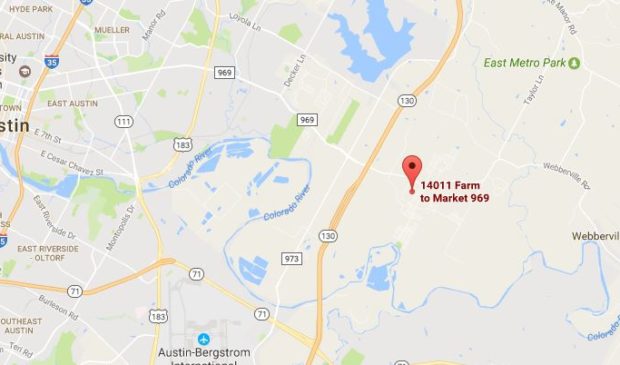Overriding staff reservations, Commissioners Court OKs affordable housing project
Friday, June 2, 2017 by
Caleb Pritchard The Travis County Commissioners Court on Tuesday gave its blessing to a low-income apartment project despite reservations from staff and a nonprofit that advocates for fair housing.
At question was the proposed Del Valle 969 Apartments, a development planned to be built at 14011 FM 969, in an unincorporated area known as Hornsby Bend.
The project would deliver 302 new units, all of them reserved for residents who make no more than 60 percent of the median family income.
San Antonio-based development firm the NRP Group plans to apply for 4 percent tax credits to finance the project and thus came seeking the county’s support.
In a letter to Commissioner Jeff Travillion, in whose Precinct 1 the new residences would rise, NRP senior vice president of development Daniel Markson highlighted the fact that the property is adjacent to Hornsby-Dunlap Elementary School and Dailey Middle School, both in the Del Valle Independent School District.
“With excellent proximity to Del Valle schools and voter-approved road improvements coming to Hornsby Bend along FM 969, our team feels that quality and affordable housing units will be a great addition to the community, especially in light of growing gentrification trends eastward in Travis County,” Markson wrote.
According to the letter, the Austin’s Colony Homeowners Association and Nelson Linder, head of Austin’s NAACP chapter, support the development.
On Tuesday, NRP’s Jason Arechiga attempted to preempt concerns about locating the project in a seemingly isolated section of the county.
“Even though it may appear to be further out on the east side of Austin, it’s actually about, depending on traffic, a 15-minute drive down MLK to downtown and also on 130 so it has extreme connectivity to all of Austin and the amenities” Arechiga said.
Juliana Gonzales, executive director of the Austin Tenants’ Council, echoed staff concerns in her criticism of the location. She pointed out that the nearest grocery store is seven miles away and that the Capital Metropolitan Transportation Authority has no transit service in that section of the county.
“I’m worried about trying to draw development outward by putting affordable housing out there and hoping that amenities will follow,” Gonzales told the court. “That kind of draw on the poorest members of our community is probably not likely to be successful and it’s most certainly a threat to (reversing) housing segregation and I would like us to be thoughtful about how we target our investments.”
Travillion downplayed those concerns and indicated that his priority is closing the gap of low-income housing in the region.
“I don’t know how we argue that investments shouldn’t be made in an area that is under-invested in and has been historically,” Travillion said.
Commissioner Margaret Gómez concurred, adding, “It’s been mentioned several times that teachers, law enforcement officers, firemen, firefighters – they all need affordable housing in Austin and Travis County. So I don’t know that putting additional housing in that area is going to lead to more segregation.”
More housing in an area, Commissioner Gerald Daugherty said, will attract more amenities to it. He also pledged to work with NRP to find suitable locations in his western Travis County precinct for affordable housing developments.
Just before the vote on a resolution signifying the county’s lack of objection to the project, County Judge Sarah Eckhardt said she would rather wait for the private market to add more housing to the area and attract the necessary amenities. Said Eckhardt, “I agree with staff’s opinion that this is an excellent piece of property, this is an excellent developer, and if it were to be land-banked until there were additional elements that really made this sing, I would be 100 percent in favor of this.”
Eckhardt was alone in her dissent as the resolution passed 4-1.
The Austin Monitor’s work is made possible by donations from the community. Though our reporting covers donors from time to time, we are careful to keep business and editorial efforts separate while maintaining transparency. A complete list of donors is available here, and our code of ethics is explained here.
You're a community leader
And we’re honored you look to us for serious, in-depth news. You know a strong community needs local and dedicated watchdog reporting. We’re here for you and that won’t change. Now will you take the powerful next step and support our nonprofit news organization?









